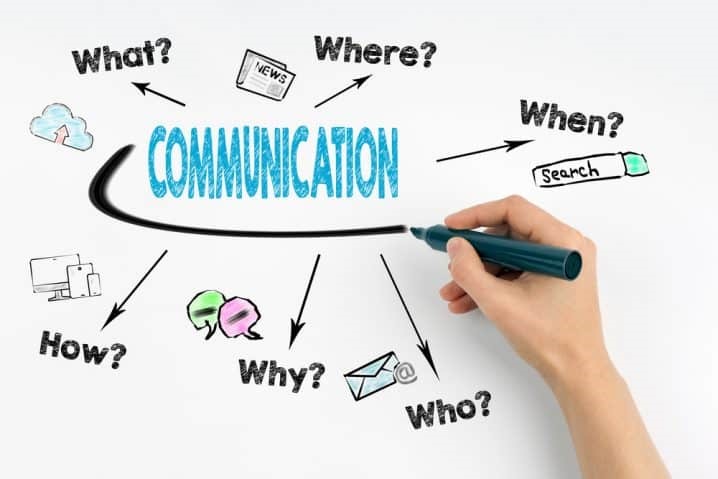Being an exceptional tour leader is a delicate art. The best guides leave a tour group feeling like they have experienced the best a place has to offer within a relatively short period.
Moreover, an ideal tour guide offers a fun, new, culturally immersive experience while simultaneously making you feel right at home. And that’s no easy task.
What Characteristics Make a Great Tour Guide?
An in-depth understanding of the subject matter, top-notch communication skills, a good sense of humor, punctuality, and impeccable time management — all these qualities make up an effective tour guide and help contribute to a professional tour.
But what are the essential tour guide skills one needs to get ahead in this booming industry? How can you ensure you can give a random group of people an unforgettable travel experience and confidently lead any tour? To answer these questions, we’ve compiled a list of some fundamental traits that help make a great guide below.
1. Thorough Knowledge Of Your Tour
Knowing exactly where you are and the ins and outs of your specific tour are fundamental for any tourist guide. Tour operators and travel brochures will usually offer a good amount of basic information about famous destinations. But with globalization, even the more isolated areas of the world will have at least some information about them out there.
Moreover, the internet can offer travelers an abundance of history and interesting facts about almost anything. And many travelers do their homework these days. But even if they don’t, they can usually reach for their phone and Google where they are and what they’re seeing at any given minute.
So you want to make sure that you can offer your clients something not only interesting and exciting, but hopefully also something they don’t already know. And the way to do that is by educating yourself and staying informed. Do your research (online and elsewhere), talk to locals and colleagues, study similar tours, and think about what facts and tidbits will make your specific tour stand out. And stay up to date on any relevant changes so you’re not caught off-guard.
Keep in mind that there are different types of tour guiding and you need to prepare accordingly.
2. Strong Understanding
No tour is the same. But one thing that makes any tour special and memorable is when people leave feeling that they know a lot more about a place than they did going in. And in the modern age of easy access to information, that’s no small feat.
You want to make sure you know your subject matter front and back. Whether it be Times Square or a rural village in Asia, a big city craft beer trail or the wide-open spaces of a national park, a row of museums and/or street art masterpieces, or anything in between. Study your terrain and ensure you are confident in your material daily.
You also want to make sure you know your audience as much as possible. A tour guide needs to both provide information and answer questions while remaining professional and respectful. So a strong sense of empathy and cultural open-mindedness is also key. Remember that you’re working with people of many different backgrounds, various levels of education, and numerous social norms. The questions a client might ask can often be unpredictable and challenging. And you want to be prepared.
So try to put yourself in your listeners’ shoes — see what it is that makes your tour and what people learn from you particularly fun, informative, and inclusive. In other words, go that extra mile and take the time to make your tour truly unique.
See also our article: what tools do tour guides use.
3. Ability To Communicate Effectively
Knowledge is one thing, but the ability to pass on that knowledge in a memorable and effective way is quite another. So a good guide must be a good communicator. And good communication skills depend on several different factors.
First off, you want to be sure nothing is lost in translation. With tourism, the clientele is usually international. Most tours around the world are therefore conducted in several different languages. Knowing the local language and dialect is a major plus. But being bilingual and/or a polyglot is a bonus as well. Either way, you want to make sure you know the local basics — how to say, “thank you,” the correct names (and pronunciations) of famous landmarks, historical figures, cuisine, and/or any other common points of interest associated with your particular tour. A translation app can come in very handy here as well.
And since your audience comes from all walks of life and cultural backgrounds, you also want to keep it both interesting and simple. Whether you’re talking to a small group or dozens of people, you want to make sure your audience is not missing out on anything. Speak clearly and loudly, enunciate, and maintain eye contact whenever possible. Keep it short and don’t overcomplicate things. Read your audience, ask questions, and make sure that everyone is on the same page.
Although having an outgoing personality helps, not all tour guides are extroverts. If you are confident in your tour and know your stuff, you should be able to relate to and communicate with almost any group of people with comfort and ease. Effective communication as a tour guide simply means that everyone is engaged, comfortable, learning, and having at least some level of fun throughout the tour.
There are situations where it might not be possible to communicate effectively, in those cases it’s fundamental to have a tour guide system in place. These audio systems allow you to communicate with members of a tour, even in a noisy environment.
4. Ability To Improvise
Improvisational skills are essential. Because no matter how prepared you are, things can’t always go according to plan. So, the best tour guides can think on their feet, embrace spontaneity, and adapt to any situation.
The ability to improvise can prove vital in any number of different scenarios. Telling an improvised joke to answer a difficult question can get the whole group laughing, lighten the mood, and thereby ensure that people stay engaged. If the weather is bad, or a business is closed, or a street is blocked off, successfully rerouting your tour and incorporating something off-script can add a sense of adventure. Improvisation on the part of the guide can often bring a group closer together and make the tour feel extra unique. And in more serious situations, administering first aid and/or being able to get to help quickly in case of an emergency will ensure everyone’s safety, and can even help save a life.
Since the clientele is so varied in the tourist industry, improvising is second nature to most professional tour guides. Because, essentially, you never really know what you’re going to get with any given tour. There are plenty of surprises in store daily — from the weather to the size of the group to its level of language and cultural differences, and so on.
Being able to deal with the unexpected during a tour takes some time and practice. But even if you’re starting, there are certain things you can learn to anticipate. Plan, but have a plan b too. And during the tour itself — go with the flow, have fun, and trust your instincts.
5. Eagerness To Learn And Willingness To Teach Others
The job of a tour guide shares many common traits with that of a teacher. And being a good teacher requires not only knowledge but also a certain level of patience, flexibility, and empathy. At the same time, a good teacher is someone always willing to learn.
Aristotle called teaching “the highest form of understanding.” Albert Einstein had this to say about it: “I never teach my pupils; I only attempt to provide the conditions in which they can learn.” But perhaps Bruce Lee drew the parallel best: “A teacher is never a giver of truth; he is a guide, a pointer to the truth that each student must find for himself.” As a tour guide, you too use your understanding to provide the conditions for people to learn. You point out certain details and facts that they may not be aware of yet, and they do the rest.
And with every person you meet and every tour you give, you grow and expand your understanding too. You share your experience and in return, you learn from the experiences of others — both about their culture, history, and background, as well as your own.
One of the many things that make the job of a tour guide so unique is this daily cultural exchange between people. What brings you together is simply some common point of interest — art, history, food, and so on. But every tour’s benefits and long-term rewards can be priceless and immeasurable for everyone involved.







